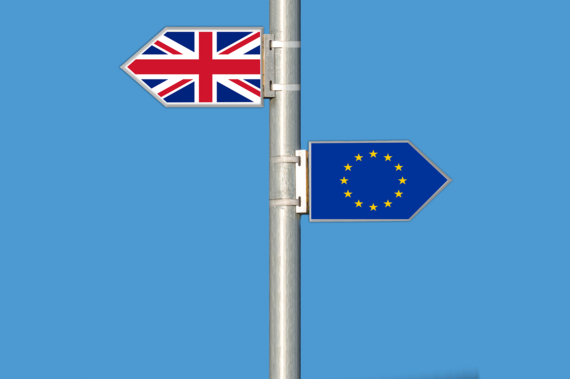British voters' decision to leave the European Union has reduced the chance that three countries in the former Soviet Union will be able to get out from under Russia's thumb.
Without the support of Britain, which was the most vocal EU opponent of the Kremlin's aggression against countries on Russia's borders, Ukraine and Georgia will find it more difficult to realize their dream of becoming part of the EU and NATO.
And Armenia, much of whose population wanted to join the EU before Russia bullied Yerevan into joining the Moscow-led Eurasian Economic Union, will have to continue swallowing Russian dominance of its affairs.
European and American leaders said even before the Brexit vote that Ukrainian and Georgian membership in the EU and NATO was a long way off.
One reason for this assessment applied to both Ukraine and Georgia. The other reason was Ukraine-specific.
The first reason was fear of Russia's reaction to either Ukraine, Georgia -- or both -- becoming part of the main political, economic and military force that is arrayed against Moscow in Europe.
A specific worry was that Russia would try to destabilize -- or even send hybrid-war forces into -- the Baltics in retaliation.
The other reason why Western leaders have said that Ukraine's membership in the EU and NATO is a long way off is Kiev's sandbagging on two goals the West has deemed important.
The first goal is for Ukraine to eliminate corruption. The second goal is for Kiev to make the Minsk peace process work by passing legislation that gives a lot of autonomy to the separatist strongholds of Donetsk and Luhansk provinces in eastern Ukraine. That legislation includes how voting for leaders of the two provinces would occur.
The Minsk process is an ongoing attempt involving Ukraine, the separatists, Russia, the EU, the United States and others to forge a peace agreement in the east.
A number of political analysts have noted that Britain's departure from the European Union will make Ukraine and Georgia's membership in the EU and NATO even more of a long shot.
That departure is likely to lead to years of post-Britain adjustment in the EU.
The last thing the European Union needs during this tumult is to add countries whose membership would be fraught with geopolitical risk.
Although a country doesn't have to be an EU member to be a NATO member, the military alliance would be as reluctant as the EU to add Ukraine or Georgia out of fear of provoking the Russians.
In addition, both Ukraine and Geogia would have to have stronger militaries to be considered for membership.
Although Armenia committed to joining the Eurasian Economic Union in the fall of 2013, it did so under duress -- an ultimatum from Russian President Vladimir Putin to Armenian President Serzh Sargsyan.
Until then, Yerevan had signaled its intention to be in the EU.
In fact, Armenia was on the verge of signing a partnership agreement with the European Union when Putin summoned Sargsyan to Moscow to demand that Yerevan do a 180 and join the Eurasian Economic Union.
That kind of demand is hard to walk away from when Russia is your main military protector in the region, has two bases in your country, supplies you with most of your gas, and owns your main electricity company.
Even after Armenia joined the Eurasian Economic Union, many Armenians clung to the dream that their country would join the EU some day, believing the future lay with the West.
Underscoring that hope was the fact that, even as a Eurasian Economic Union member, Armenia struck economic and trade deals with the EU.
British voters' decision to leave the European Union dealt a crushing blow to the many Armenians who had dreamed of their country loosening Moscow's grip and embracing the freedom the West represents.
Whether they want Armenia to look east toward Moscow or west toward Brussels, Armenians know the EU will be weaker with Britain gone.
That means it will be harder for the EU to stand up to Moscow regionally and internationally.
The bottom line is that, overnight, the British vote has prompted many pro-EU Armenians to conclude that there is a lot less reason now for their country to cast its fate with Europe.
A depressing thought, yes -- but, unfortunately, a realistic one.
Armine Sahakyan is a human rights activist based in Armenia. A columnist with the Kyiv Post and a blogger with The Huffington Post, she writes on human rights and democracy in Russia and the former Soviet Union. Follow her on Twitter at: www.twitter.com/ArmineSahakyann

